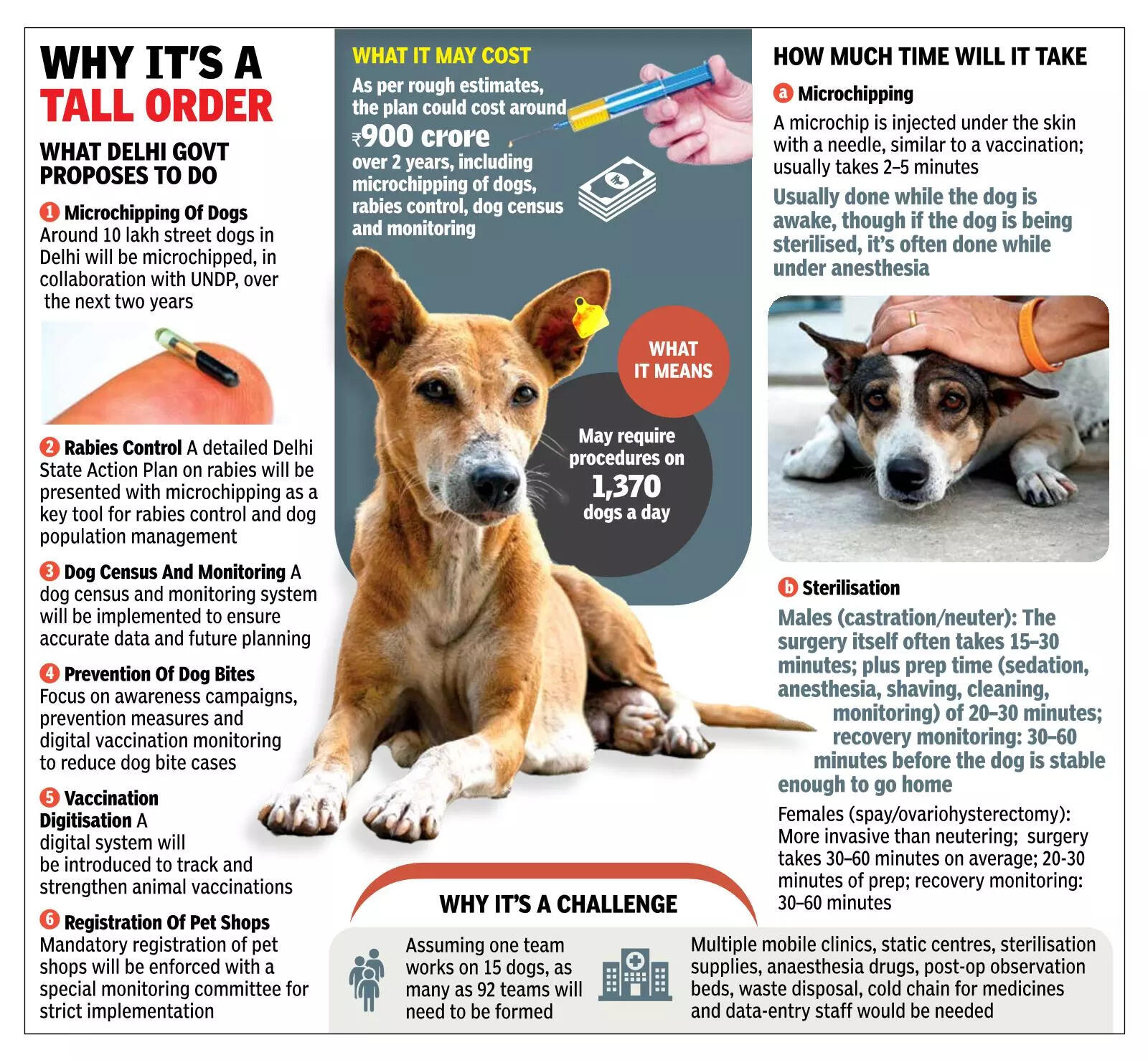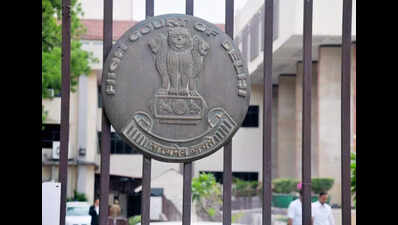NEW DELHI: The Delhi government has unveiled an ambitious plan to microchip nearly 10 lakh street dogs, regulate pet shops, and roll out a comprehensive rabies action plan over the next two years. The decision was taken at a meeting of the Delhi Animal Welfare Board held at the Delhi Secretariat under the chairmanship of development minister Kapil Mishra on Wednesday. According to rough estimates, the plan could cost around ₹900 crore over two years, covering microchipping, rabies control, a dog census, and monitoring. Officials said the scale of the project means that procedures would need to be carried out on about 1,370 dogs every day. As part of the initiative, the government has outlined six key measures:
- Microchipping of Dogs: Around 10 lakh street dogs will be microchipped in collaboration with UNDP over the next two years.
- Rabies Control: A Delhi State Action Plan on rabies will be presented, with microchipping as a central tool for rabies control and
dog population management . - Dog Census and Monitoring: A census and monitoring system will be introduced to ensure accurate data and effective planning.
- Prevention of Dog Bites: Awareness campaigns, preventive measures, and digital vaccination monitoring will be launched to reduce dog bite cases.
- Vaccination Digitisation: A digital system will be developed to track and strengthen animal vaccinations.
- Registration of Pet Shops: Mandatory registration of pet shops will be enforced under a special monitoring committee.
The microchipping process involves injecting a chip under the skin with a needle, similar to a vaccination, and usually takes 2–5 minutes. It is typically done while the dog is awake, though if sterilisation is being carried out simultaneously, it is often performed under anaesthesia.

Sterilisation procedures, meanwhile, take considerably longer—neutering male dogs can take 15–30 minutes, while spaying females averages 30–60 minutes, excluding prep and recovery time. Mishra said the initiative will strengthen rabies control and improve dog population management. “Our aim is to ensure that Delhi sets an example for the entire country in this field,” he said, assuring that the government would provide adequate funds to ensure rapid progress. The meeting also discussed proposals to transfer funds from the Delhi Advisory Board for Animal Welfare to the Delhi Animal Welfare Board, set up a standing committee and sub-committees, recruit new staff, and approve expenditure for smooth functioning of the board’s initiatives. The government will also launch awareness programmes in schools in collaboration with the education department and constitute an animal market monitoring committee. District-level animal welfare committees are also planned. The Supreme Court has recently directed states to frame policies on street dogs. It ruled that non-aggressive and non-rabid dogs should not be confined to shelters but sterilised, immunised, and released back into the same areas. It has also banned public feeding of stray dogs except in designated spaces and directed that municipal authorities must not be obstructed from implementing animal birth control rules. The last dog survey conducted in 2016 across four zones of the then South Municipal Corporation of Delhi had recorded 1,89,285 dogs. The government now estimates that the city has at least 10 lakh dogs.









